Cléo de 5 à 7 (1962): beauty and death | la belleza y la muerte

De las mejores películas francesas de todos los tiempos
It's been a while since I've seen a black and white movie and it's also been a while since this story was on my mind. Looking for her one day, I even found 5 to 7, also with a French actress, but about fifty years more recent, and on that occasion the modern beat the classic. But the day has finally come to see Cléo from 5 to 7.
Hacía tiempo que no veía una película en blanco y negro y también hacía tiempo que esta historia me rondaba la cabeza. Incluso, buscándola un día, encontré 5 to 7, también con una actriz francesa, pero unos cincuenta años más reciente, y en aquella oportunidad lo moderno venció a lo clásico. Pero por fin llegó el día de ver Cléo de 5 à 7.
Considered one of the best French films of all time, this film by the legendary Agnès Varda (who also wrote it) was impeccably starred by Corinne Marchand, the one in charge of bringing Cléo to life for a little over ninety minutes. Cléo Victoire is a young French singer who lives in Paris. Talented, beautiful and successful, it seems that everything in life should smile at Cléo, but it's not. Throughout the entire film we accompany Cléo in her waiting. Impatient, at the end of the afternoon she must go to the hospital to look for the results of some medical tests that she underwent a couple of days before. What the young woman suspects and seems to confirm with the tarot reading with which the film opens is that the results of the analyzes will be devastating: Cléo thinks she has cancer. The possibility that she could die much sooner than she herself would have expected increases her restlessness and irritability, what meaning can life have for her now?
Considerada una de las mejores películas francesas de todos los tiempos, este film de la mítica Agnès Varda (quien también la escribió) fue protagonizada de manera impecable por Corinne Marchand, la encargada de dar vida a Cléo durante un poco más de noventa minutos. Cléo Victoire es una joven cantante francesa que vive en París. Talentosa, bella y exitosa, pareciera que todo en la vida debiera sonreírle a Cléo, pero no es así. A lo largo de toda la película acompañamos a Cléo en su espera. Impaciente, al final de la tarde debe dirigirse al hospital para buscar los resultados de unos análisis médicos a los que se sometió un par de días antes. Lo que la joven sospecha y parece ratificar con la lectura del tarot con la cual abre la película es que los resultados de los análisis serán devastadores: Cléo cree que tiene cáncer. La posibilidad de que pueda morir mucho antes de lo que ella misma hubiera esperado aumenta su inquietud y su irritabilidad, ¿qué sentido puede tener la vida ahora para ella?
The whole film is a reflection on the love of life, vanity and death. Cléo knows she's young and she knows she's beautiful. For her, her beauty is life. For this reason, the shadow of a disease that could be terminal hovers over her head, disrupting the reality that the young singer had known until then.
Toda la película es una reflexión sobre el amor a la vida, la vanidad y la muerte. Cléo se sabe joven y se sabe bella. Para ella su belleza es vida. Por eso, la sombra de una enfermedad que pudiera ser terminal, planea por encima de su cabeza trastocando la realidad que la joven cantante había conocido hasta entonces.
I loved the photography, with those games of mirrors and the sequences in movement, whether it was in a vehicle or a wide shot to see Cléo walking down the street. I loved the music of the film and I also really liked the script: the phrases and each of the scenes, in which there is room to reflect, sigh, cry and also laugh. I also liked the characters that appear around Cléo and whose presence further enriches the drama of the protagonist. José, Angèle, Maurice, Dorothée, Raoul, Bob parade across the screen and their thoughts and words also give us a sample of how the world sees Cléo. From the tarot to a café, from there to a taxi, to her house, to a rehearsal, they accompany her in real time (because the time that elapses in the film is the same as that elapses within the story) and Cléo allows herself to be accompanied in an attempt to lengthen the afternoon and postpone the moment of truth.
Me encantó la fotografía, con esos juegos de espejos y las secuencias en movimiento ya fuese a bordo de un vehículo o una toma amplia para ver a Cléo caminar por la calle. Me encantó la música de la película y también me gustó mucho el guión: las frases y cada una de las escenas, en las que hay espacio para reflexionar, suspirar, llorar y también reír. Me gustaron también los personajes que van apareciendo alrededor de Cléo y cuya presencia enriquece más el drama de la protagonista. José, Angèle, Maurice, Dorothée, Raoul, Bob, van desfilando por la pantalla y sus pensamientos y palabras nos dan también una muestra de cómo ve el mundo a Cléo. Del tarot a un café, de allí a un taxi, a su casa, a un ensayo, ellos la acompañan en tiempo real (pues el tiempo que transcurre en la cinta es el mismo que transcurre dentro de la historia) y Cléo se deja acompañar en un intento de alargar la tarde y posponer la hora de la verdad.
And then, fed up with the world, Cléo takes off her wig, dresses in black and goes out on the street alone, no longer with her stage name but with her real name: Florence. This gesture, this nakedness with which the protagonist finally decides to approach what could be the definitive moment of her life seemed significant to me. As well as the appearance of Antoine, a young soldier about to leave for military service in Algeria who approaches her in a park. With humor not devoid of charm, Antoine manages to break down the walls of Cléo's loneliness, who dares to confess to him what she hasn't told anyone throughout the film, not even her assistant: she's afraid of dying. And what better person to understand the subject than a man who marches to the front in a war? Once again in the story, this time more directly, the theme of death is touched upon.
Y entonces, harta del mundo, Cléo se quita su peluca, se viste de negro y sale sola a la calle, ya no con su nombre artístico sino con su nombre verdadero: Florence. Este gesto, esta desnudez con la cual la protagonista decide acercarse por fin al que puede ser el momento definitivo de su vida me pareció significativo. Como también la aparición de Antoine, un joven soldado a punto de partir para hacer el servicio militar en Argelia que la aborda en un parque. Con humor no exento de encanto, Antoine logra derribar los muros de la soledad de Cléo, quien se atreve a confesarle lo que no le ha dicho a nadie durante toda la película, ni siquiera a su asistente: tiene miedo de morir. Y ¿qué mejor persona para comprender el tema que un hombre que marcha al frente en una guerra? Una vez más en la historia, esta vez de forma más directa, se toca el tema de la muerte.
Perhaps because of that same honesty, the frankness of showing their fears, added to Antoine's gallantry and sense of humor, the blossoming lovers feel very close despite having just met, completing the central quartet of the film, life-love. -beauty-death, which branches off to think about subtopics such as vanity, the disappearance of the body, the meaning of life, the value of the present, the transitory nature of our existence, among others.
Despite having been released sixty years ago, I feel that the message of the film is fresh, current. Varda was the great female voice of the Nouvelle vague and one of the pioneers of cinema made by women and feminist cinema and Cléo, without a doubt, one of her most memorable and captivating characters on screen, have any of you seen this movie? I read you in the comments.
Quizás por esa misma honestidad, la franqueza de mostrar sus miedos, sumado a la galantería y el sentido del humor de Antoine, los florecientes amantes se sienten muy cercanos a pesar de haberse conocido recién, completando el cuarteto central de la película, vida-amor-belleza-muerte, el cual se ramifica para pensar en subtemas como la vanidad, la desaparición del cuerpo, el sentido de la vida, el valor del presente, lo transitorio de nuestra existencia, entre otros.
A pesar de haberse estrenado hace sesenta años, siento que el mensaje del film es fresco, actual. Varda fue la gran voz femenina de la Nouvelle vague y una de las pioneras del cine hecho por mujeres y del cine feminista y Cléo, sin duda, uno de sus personajes más memorables y que resultan cautivadores en la pantalla, ¿alguno de ustedes ha visto esta película? Los leo en los comentarios.
Reviewed by | Reseñado por @cristiancaicedo
Other posts that may interest you | Otros posts que pueden interesarte:
 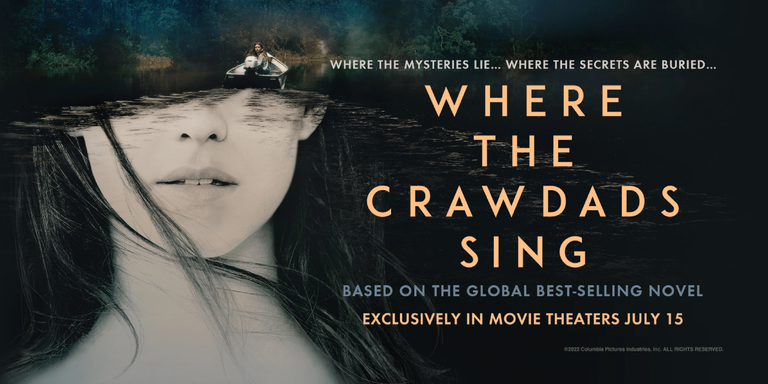 |
|---|
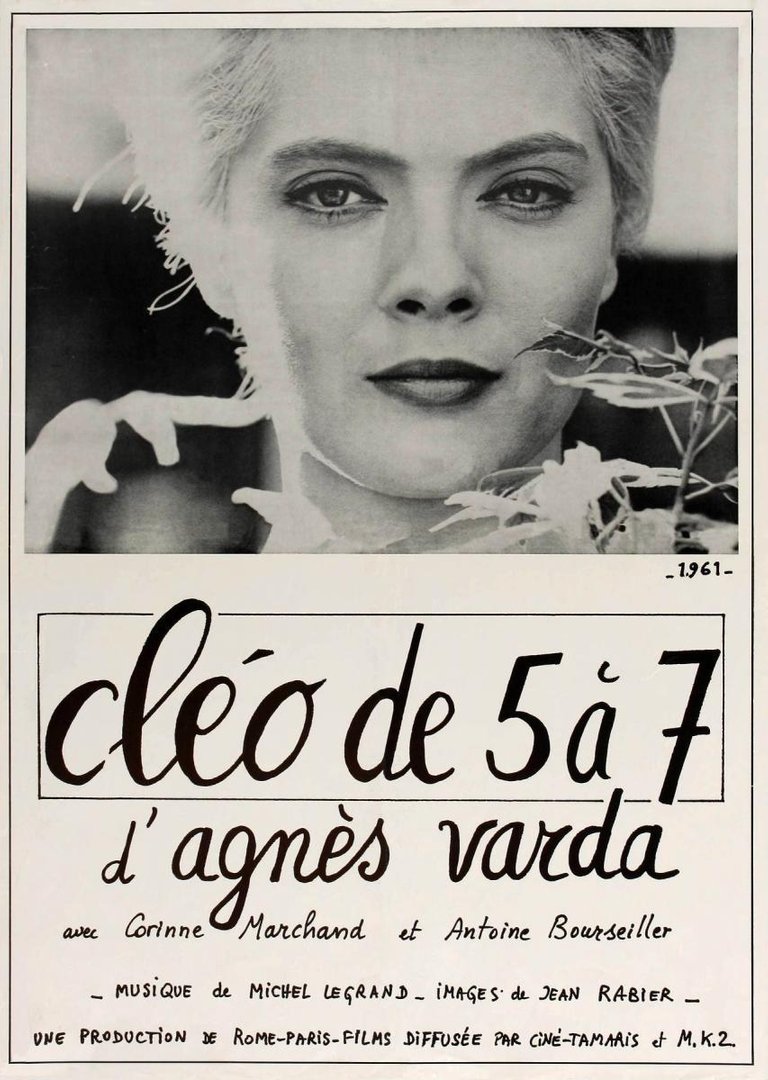
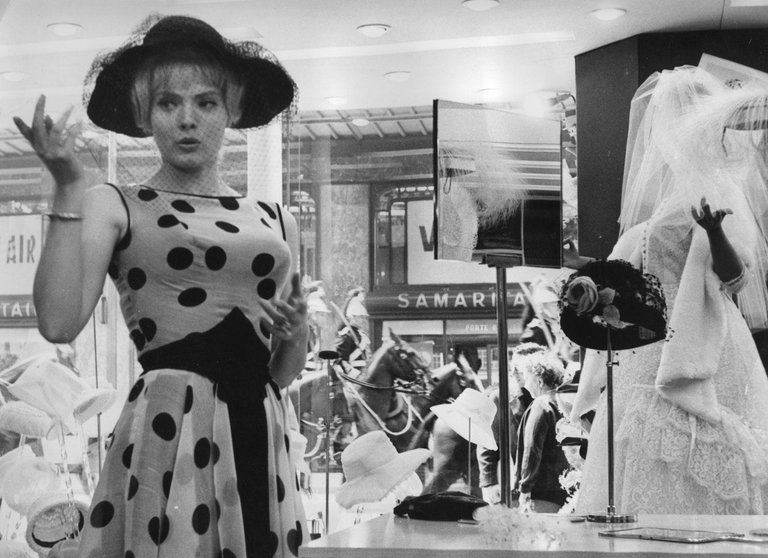
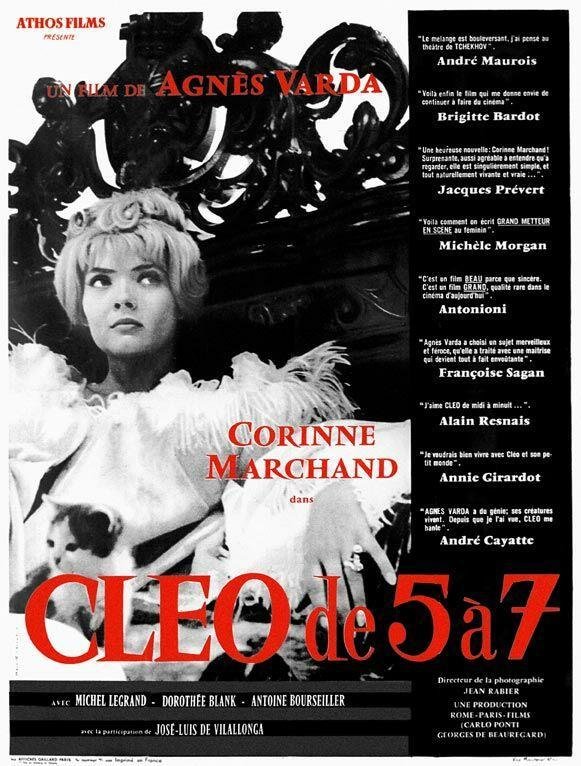
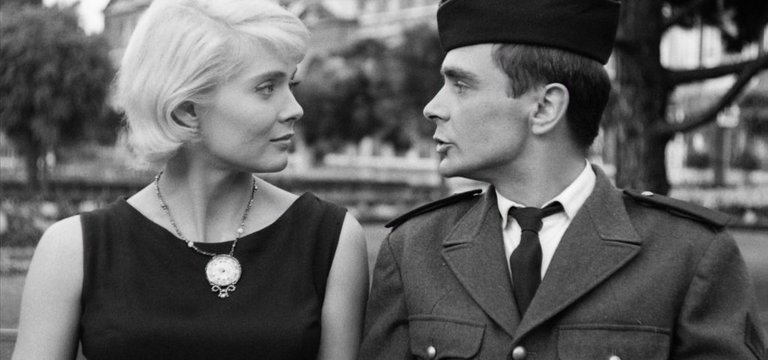
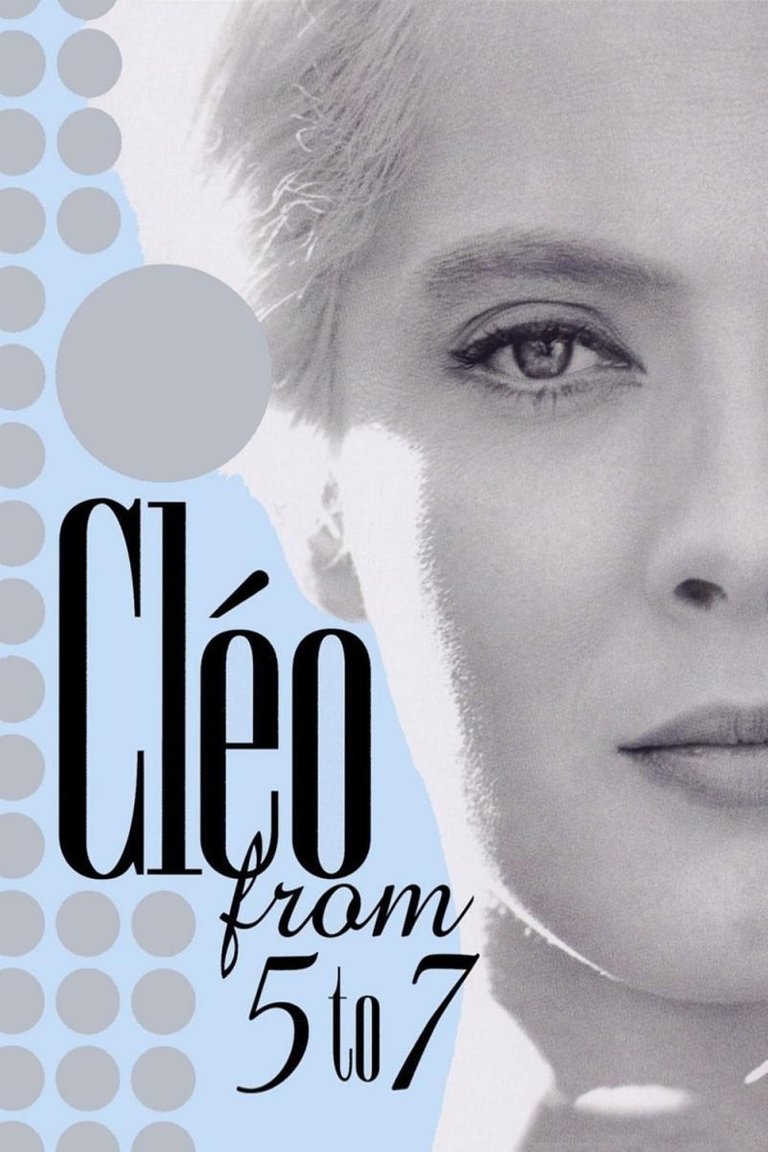
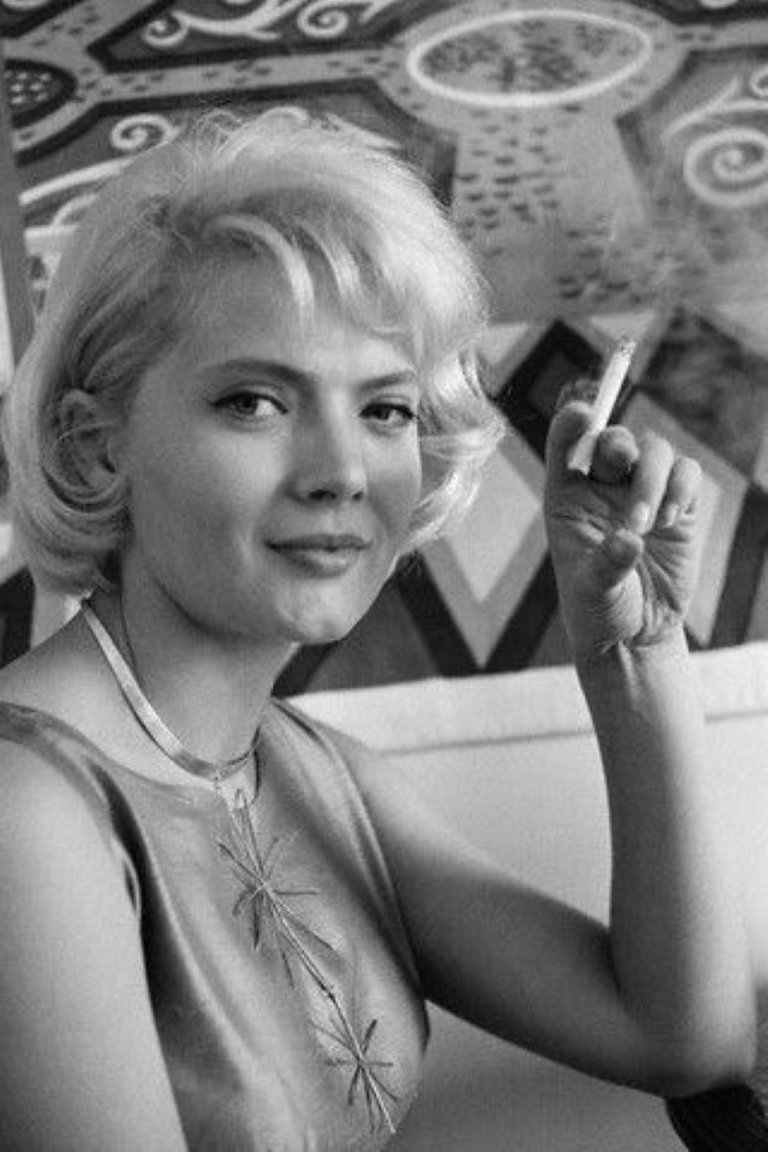
No conocía el film, en cuanto vi la portada y los tonos en blanco y negro me enamoré. Percibo una historia de nostalgia y superación... Aceptación y realidad. Para ser de hace setenta años, toca muchos tópicos que enfrenta la propia duda del existencialismo. La vida bajo la visión de una mujer cantante que debe afrontar el cáncer... Hay un paradigma muy profundo. Definitivamente la veré, necesito empaparme con la belleza que lograste apreciar en el filme. Excelente reseña, por cierto. Saludos ⭐.
Muchas gracias a ti por leerme y comentar. Espero que la disfrutes al verla. Saludos.